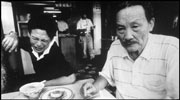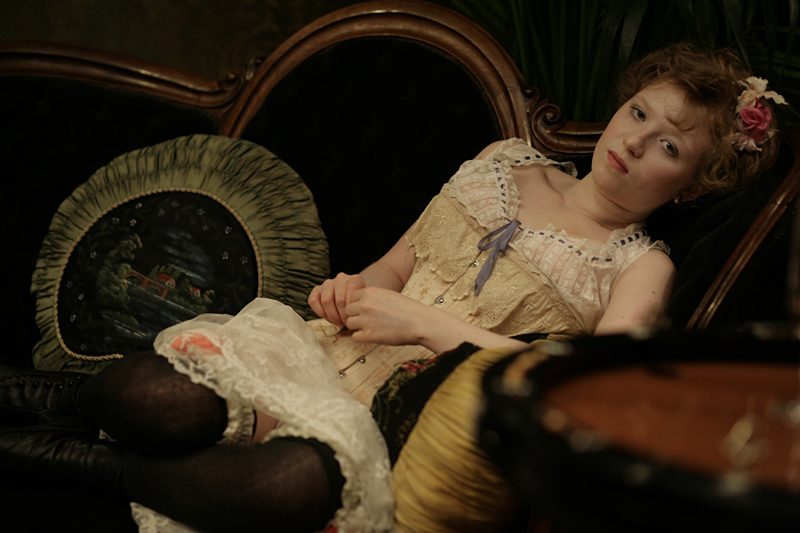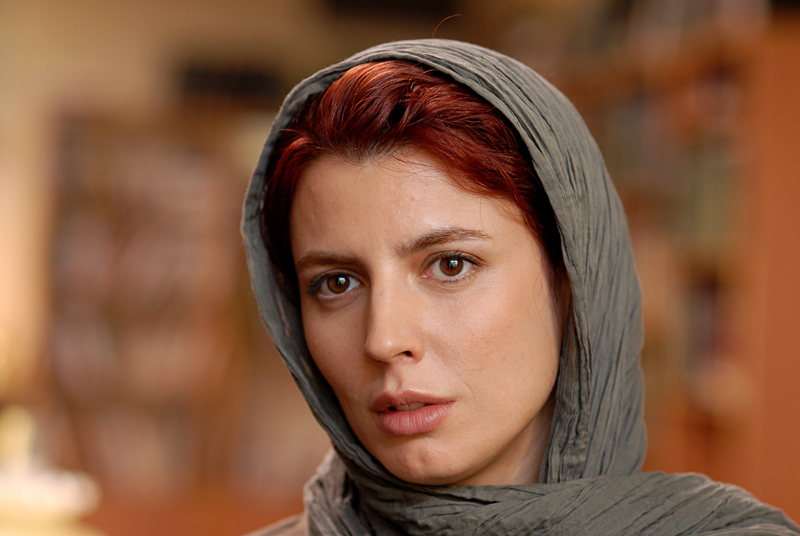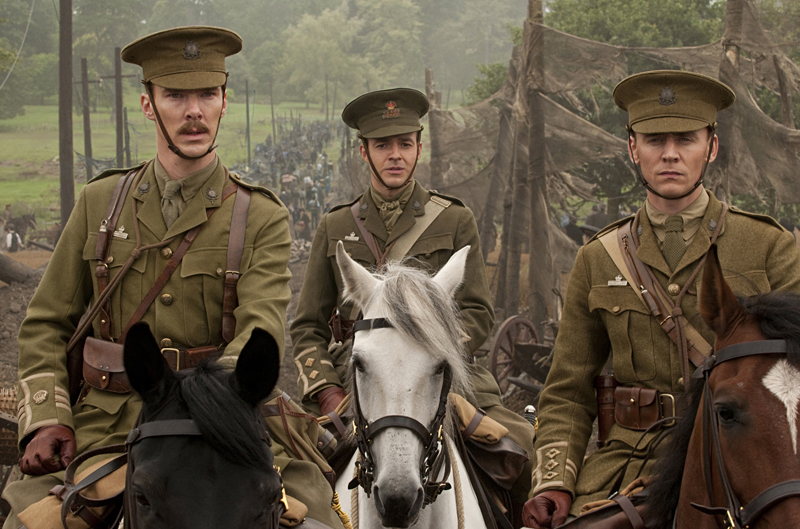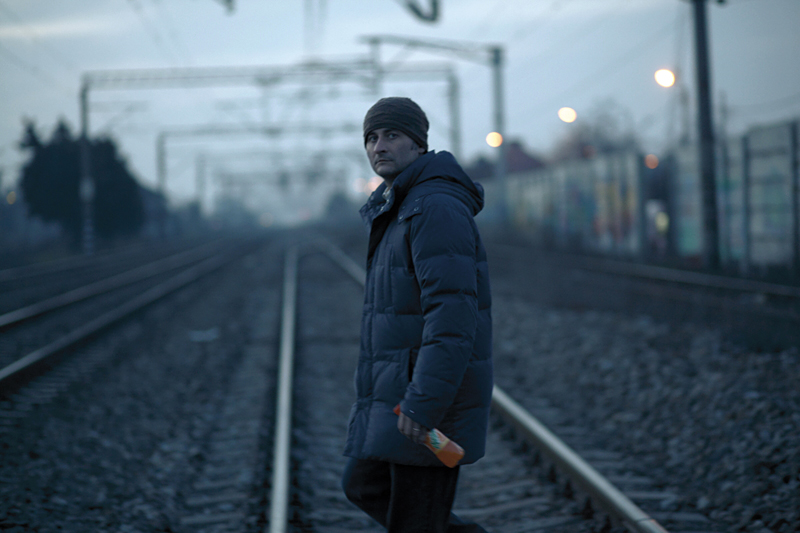THE RIVER
directed by Tsai Ming-liang with Lee Kang-sheng, Lu Hsiao-ling, and Miao Tien runs Sept. 14-20 at Grand Illusion
THE MOST EXTREME stylist in the new Taiwanese cinema, Tsai Ming-liang made 1997’s The River his most extreme—and in some ways most audacious—movie. First and foremost, Tsai is a poet of urban anomie. Life is lonely and loveless for the citizens of his anonymous, modern Taipei; Eleanor Rigby would be a fun-loving party girl in the context of The River. Indeed, there hasn’t been so angst-ridden an allegory of human isolation since Ingmar Bergman unleashed The Silence—although Tsai, it should be stressed, is not devoid of humor. Most of his jokes are visual. The River is a film in which there’s far more water passed than words.
The opening image, in which former classmates meet going in opposite directions on empty escalators, is typical of Tsai’s deadpan slapstick. The River is very nearly a series of comic blackout sketches, but it’s not exactly a comedy. Thanks to this chance encounter, Hsiao-kang (the boyishly blank Lee Kang-sheng) winds up on location watching a movie being shot by real-life Hong Kong director Ann Hui on the banks of Taipei’s polluted Tanshui River. Unsatisfied with the dummy meant to represent a floating human corpse, persistent Hui drafts Hsiao-kang to play the role.
Her movie casts a malign spell on Tsai’s. Having absorbed a mysterious toxin as a result of his immersion in acting (or, perhaps, of playing dead), Hsiao-kang consequently develops an undiagnosable neck condition. The pain is so severe that it causes him to topple off his motor scooter and so persistent that it lasts for the remainder of the film. Increasingly contorted, Hsiao-kang undergoes a prolonged series of physical exams and receives all manner of useless treatment, from magical to medical.
What exactly is being somatized here? Hsiao-kang’s malady, it would seem, is the manifestation of his love-starved and dysfunctional family. Hsiao-kang’s depressed father (Miao Tien) looks for action in the city’s gay bathhouses; his more animated mother (Lu Hsiao-ling) is having an affair with a guy who wholesales erotic videos—apparently because it allows her to watch the stuff. Even bleaker than the scene of Dad cruising a young hustler outside McDonald’s is the one in which Mom is aroused by the sound of porn from an unseen TV monitor and fails utterly to elicit a response from her sleeping lover.
NEEDLESS TO SAY, the parents never speak to each other and only occasionally acknowledge their elaborately suffering son. (It takes a good chunk of the movie to even figure out that they are a family.) In one scene, Hsiao-kang sits nursing his agony in a hospital corridor as his mother bustles heedlessly past. Even the wincing contortions of Lee’s performance have an allegorical undercurrent. They suggest nothing so much as a fish out of water, gasping for air. The pain in Hsiao-kang’s neck is hardly The River‘s only mysterious water-borne affliction. There’s a massive leak in the ceiling of the family apartment. Rather than investigate the source, stoical Dad has rigged up a jerry-built drainage system.
Easily derided as pretentious, although regarded by some as Tsai’s masterpiece, The River oscillates in tone between the lugubriously wistful and the painfully soporific before finally settling itself down as something very close to self-parody. The movie is too abstract to do more than telegraph its misery. Tsai’s vision of alienated city dwellers slowly sinks under the weight of inert characterization and schematic metaphor. The emotional climax, however luridly shocking, is also faintly ridiculous—a plot twist that Tsai might have lifted from Terry Southern’s once famous porn spoof Candy.
Like Tsai’s more compact and successfully realized works (Vive l’Amour and The Hole), The River is detached yet obsessive—a movie of long, uninflected, activity-driven takes. Here, however, the absurdity floods the banks of his intentions.
